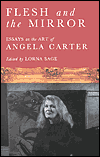Jesmyn Ward, Sing, Unburied, Sing. Bloomsbury Circle – TLS
On just about every page of Jesmyn Ward’s powerful new novel, Sing, Unburied, Sing, we get a sense of Mississippi’s wild and stirring beauty: its watery bayous, ancient trees and rich Delta soil. But it is also a landscape full of menace, imprinted with memories of violence and pain. “All them black hands”, Pop tells his grandson, recounting the story of how he chased a boy escaping from Parchman Prison over the fields. The earth was so crumbly from generations of black men working it – the “free” labour of slaves and prisoners – that Pop and his dogs found it easy to track the child. In Ward’s Mississippi, racism eats away at even the most basic human relations, corroding people’s feelings for the land, their idea of home, and even their sense of family. The mystery at the heart of Sing, Unburied, Sing is the horrifying story of the prison chase that Pop finally unburdens, the story of black prisoners forced to hunt down their escaping cell mates. It’s a tale that reveals just how active a force history is in the present, and how a legacy of injustice will subvert time and thwart progress: “Parchman was past, present and future all at once.”
This is the kind of sentence that one might find in many a twenty-first century novel, where the fragmentation of contemporary life often becomes a matter of play, and societal breakdown provides a showcase for imaginative resilience. What such fictions tend to demonstrate is that you can turn the world upside down and hijack its order precisely because you are already at home in it. Ward’s book, by contrast, is marked by an ineradicable gravity about what it means to be homeless. Its disordering properties seem less like a game with literary props than commensurate expression of a corrupt system: Pop’s wife, dying of cancer, is so mistrustful of authority she tries to treat herself with woodland herbs, and when their son is killed by a white man during a hunting expedition, his death is covered up by the local sheriff. The gothic element of Sing, Unburied, Sing, which includes two ‘characters’ who are dead, has none of the titillation that often features in ghost stories; as in Toni Morrison’s Beloved, these revenants speak of the psychic disturbance engendered by bigotry and hate. The novel’s synchronicity emanates from an awareness of how suffering is passed down through generations, with pain in the past deforming lives in the present. And despite Ward’s title, which summons the dead to speak, there is even ambiguity about storytelling.
Ward reminds us that when family history is so harrowing, storytelling does not operate in the remedial fashion it routinely does for writers such as, say, Ali Smith. The tales the thirteen-year-old Jojo hears from his grandfather are of a blighted inheritance. Tales like the one about Pop’s great grandmother who was kidnapped and brought across the ocean, her skin growing around the chains. “In her village”, Pop tells the boy, “they ate fear. Said it turned the food to sand in they mouth.” Yet if such tale-telling induces unease or despair, Ward is mindful, too, of the damage silence can do: her novel’s narrative dissemination is a sign not, as it tends to be in modern fiction, of increased autonomy but of characters cut off from one another by secrets and shame. In Men We Reaped (2013), Ward’s wrenching memoir of the deaths of five young black men from her home town in Mississippi, she educated the reader about just how difficult it can be to speak of betrayal and loss when no one is listening: “silence is the sound of our subdued rage, our accumulated grief.”
The three narrators of Sing, Unburied, Sing are Jojo, his mother, Leonie, and a ghost-child, Richie – the boy Pop met when they were incarcerated together in Parchman. For Leonie, the family’s load has been too heavy to bear. Her yearning for another life, and the shame of disavowing her parents, has led into drug addiction. The only “balm” to her “open wound” is the green-eyed white boy, Michael, son of the racist sheriff, who nevertheless “saw past skin the color of unmilked coffee, lips the color of plum, and saw me.” But Michael is also embroiled in drugs (with the collapse of oil prices, virtually all that sustains the local economy is drug money) and he, too, has been incarcerated in Parchman. When his release is pending, Leonie packs Jojo and his younger sister, Kayla, into her car and heads north to the prison to reunite the family. But the road trip reveals how deep the schism runs in Leonie whose undefined wanting finds satiety only in the drugs her lawyer feeds her. She is at war with herself, and her children are the casualties of this war when having stuck them in the back of her scorching car, she fails to feed them properly or give them enough to drink.
For a mixed-race child such as Jojo, growing up with his embattled mother, amid the still deeply-entrenched racial politics of Mississippi, life, is like living in a minefield. But as time goes on he comes to understand a little of Leonie’s behaviour, sensing that he too feels the urge to escape: “An itching in my hands. A kicking in my feet.” And in Richie, the ghost-boy wandering the woods where “a murder of silver crows” shine in the trees (or is it the ghosts of his murdered forebears unable to pass on to the next world?), there is a parallel image of homelessness, longing and entrapment.
In Jesmyn Ward we have an important new voice of the American South – one developing perhaps into the twenty-first century’s answer to William Faulkner. Fiercely partisan yet unillusioned, her command of politics and idiom is impressive. But perhaps what is most striking is Ward’s sustained and clear-eyed attention to people who, when noticed at all, are more usually consigned to a novel’s periphery. Here they take centre-stage and are depicted with the kind of piercing clarity born of love. At the novel’s close, with the ghosts restless in the tress, only Kayla, combining traits from everyone in her black and white family, can hush the spirits with her babbling song. The resilient child sits on the porch with her grandfather, shelling nuts, and is somehow able to understand instinctively the working of deprivation: “Kayla patted his arm again, but didn’t ask for another pecan. Just rubbed him like Pop was a puppy, flea-itching and half bald, starved for love.”














